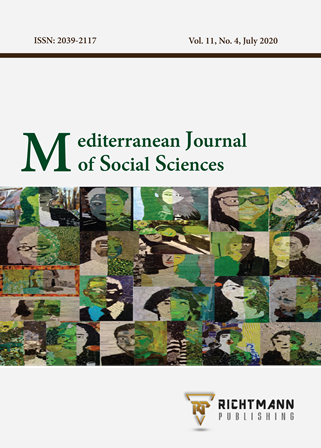Effect of Child Labour on Children’s Education in Katsina State, Nigeria
DOI:
https://doi.org/10.36941/mjss-2020-0042Abstract
Child Labour has become devilishly ubiquitous with negative implications on Nigerian child’s development. Unfortunately, most researches concentrated on child labour issues at national level while little exists in literature at state level particularly Katsina. The study investigated effect of child labour on children’s education in Katsina State using descriptive survey design. Multi-stage sampling technique was used to select 216 child labourers from three senatorial districts of Katsina States. Structured interview schedule was used to collect data on respondents’ socio-economic characteristics, involvement in child labour, causes and effect. Descriptive and inferential statistics were used in analysing data. Level of child labour in the State was high. Poverty, lack of uniform, books and problem of transportation fare were push factors. Majority perceived effect of child labour on education to be unfavourable. Being too fatigued for school work and to read, constrained enrolment in school, inability to recall learned experience and dropped out, lack of appraisal ability and disruption of school attendance were major effects. Significant correlation existed between level of involvement in child labour, causes and perceived effects on education. Family type and mother’s occupation showed significant relationship with effect. Causes of child labour involvement were major determinants of effect. Result provided support to show that level of child labour involvement was worrisomely high. Total free and compulsory primary and secondary education in the state should be taken serious and sanctions mated to parents who may attempt to deny their children schooling opportunity.
Downloads
Downloads
Published
Issue
Section
License
This work is licensed under a Creative Commons Attribution-NonCommercial 4.0 International License.











